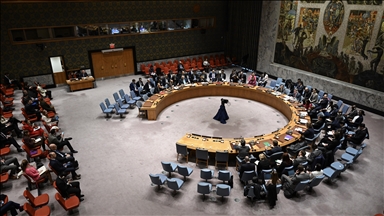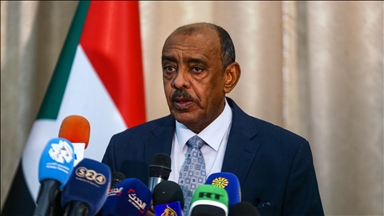
KHARTOUM
A landmark move by Sudan's transitional government to criminalize female genital mutilation (FGM) is winning praise from activists as a breakthrough in efforts to end discrimination against women in the country.
Last week, the transitional government approved a draft law criminalizing the act of carrying out FGM, making it punishable by up to three years in prison.
The bill still needs to be passed by members of the sovereign council, which was formed following the ouster of President Omar al-Bashir last year.
"Having a clear law against FGM is a huge step to change the lives of women and girls in Sudan," FGM expert Sara Isam Aldin told Anadolu Agency.
A traditional practice in Sudan, FGM involves the partial or total removal of the external female genitalia for no medical reason.
Sudan is considered to have a very high FGM prevalence rate, which UNICEF’s Multiple Indicator Cluster Surveys (MICS) in 2014 found to be 86.6%.
-Breakthrough
Anti-FGM campaigners see the draft law as a breakthrough in efforts aimed at ending all forms of discrimination against women in Sudan.
"This is a breakthrough for the rights of women and children and for the long struggle of Sudanese women," prominent women activist Tahani Abbas told Anadolu Agency.
She said laws related to marriage, divorce and child marriage among many others still need to be changed.
"Our main goal is to stop all forms of violence against women, not just the FGM," Abbas said.
"There is no meaning of banning FGM while other forms of abuse are still there; this is why we are sticking with the importance of joining, signing and ratifying the international Convention on the Elimination of All Forms of Discrimination Against Women (CEDAW)," she said.
Salma Ismail, the deputy chief of communication and advocacy at UNICEF's Sudan office, said the legislation will help end the FGM practice in Sudan.
"This will have a huge impact as women will come forward and confidently say we are protected against FGM by law," Ismail told Anadolu Agency.
"FGM is a serious human rights violation but criminalizing it can only go so far as a deterrent when you consider how highly intertwined the practice is with religion and culture in Sudan."
-Awareness
Women activists have called for launching campaigns to raise public awareness to help avoid any kind of social resistance to the banning of FGM.
"The legislation will definitely change a lot but implementing the law will be an issue as some communities would still do it under the table," Isam Aldin said.
"FGM is a very embedded habit in the community as some women will do their best to continue the practice although they know it has nothing to do with Islam but marriage and the stigma of not being cut in the community have been their main concern."
Activist Maysoon Elngoumi echoed a similar opinion.
"There are many factors coming in together that might support a legal action banning FGM, such as the school curriculum and the media discourse, which may curb the influences of the more backward thinking and re-enforce a more positive image of women and child rights," she said.
Anadolu Agency website contains only a portion of the news stories offered to subscribers in the AA News Broadcasting System (HAS), and in summarized form. Please contact us for subscription options.







